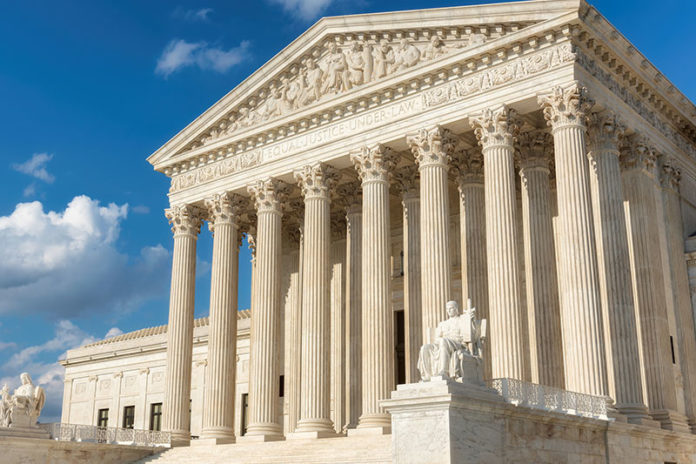Justices Neil Gorsuch and Brett Kavanaugh certainly have grounds to feel threatened and aggrieved by Sen. Charles Schumer’s warning that they “will pay the price” for any “awful decisions” they bring about. It was an irresponsibly worded comment, as Schumer himself later conceded. I can just imagine what anxiety they must have suffered.
But in our concern for the emotional health and physical well-being of these justices, let’s save a bit of sympathy for a much larger group of people who face something considerably more dire — which may come from the Supreme Court.
Close to a million women of childbearing age stand to lose much of their reproductive freedom if the court upholds a Louisiana abortion law. That law was before the court as Schumer spoke on Wednesday.
The state has just three clinics where women can exercise their constitutionally protected right to terminate a pregnancy. If the justices approve this law, the number of such clinics is likely to fall to one. A Shreveport resident who wants to end a dangerous or unwanted pregnancy would have to travel more than 300 miles to New Orleans.
Actually, the number of women with cause for alarm is far higher than a million — because if the law survives, other states will adopt their own versions. Texas had a nearly identical law that the Supreme Court struck down in 2016. Several states have already adopted tight restrictions on abortion, and Alabama passed a near-total ban — which a court has blocked from being enforced.
The title of the Louisiana Unsafe Abortion Protection Act is intended to convey that the supporters are concerned about the health of women undergoing a dangerous procedure.
As honesty goes, it’s right up there with the East German government’s name for the Berlin Wall: The Anti-Fascist Protection Rampart. As in this case, the label was a risible misrepresentation of something that hurt its ostensible beneficiaries.
The law requires doctors who do abortions to have the prerogative of admitting patients to a hospital within 30 miles of the clinic. This may sound like a sensible safeguard for cases when serious complications arise. In fact, it’s a needless mandate that would prevent competent physicians from providing the care that their patients want.
To begin with, abortion is extremely safe. A 2012 study in the journal Obstetrics and Gynecology found that a woman is 14 times more likely to die from childbirth than from an abortion.
The Hope Medical Group for Women clinic in Shreveport, which has been operating for 23 years, treats about 3,000 women a year. In all that time, it says, only four patients required hospital care. Even in such instances, women are likely to visit the closest emergency room, where medical personnel will treat their complications. The doctor who performed the abortion would not normally be called in, even if she were nearby.
Women who have miscarriages, as it happens, also sometimes need emergency treatment.
But doctors who treat women for incomplete miscarriages — to remove fetal tissue that is not expelled — are not required by Louisiana to have these admitting privileges.
If the state were truly concerned about the health of women, it would allow health insurance sold on the state Affordable Care Act exchange to pay for abortions when the patient’s life is in danger. Surprise: It doesn’t.
As U.S. District Judge John W. deGravelles concluded in his decision striking down the law, the requirement “provides no benefit to women.” The state, he noted, cited no instance “in which an admitting privileges requirement would have helped even one woman obtain better treatment.” It is “an inapt remedy for a problem that does not exist.”
The real purpose of the law is to make it harder, if not impossible, for women to obtain abortions. It was not medical associations or public health experts who lobbied for it. It was anti-abortion zealots.
When the legislation was under consideration, one “pro-life” advocate assured the sponsor that under a similar measure, Texas had “tremendous success in closing abortion clinics and restricting abortion access.” Republican Gov. Bobby Jindal, who signed the law, said it “will build upon all we have done the past six years to protect the unborn.”
The people who enacted this law claim to be acting for the benefit of Louisianans who choose to get abortions. With friends like these, those women don’t need enemies.































